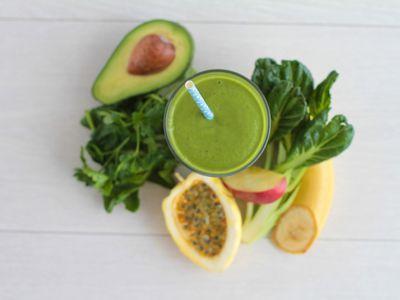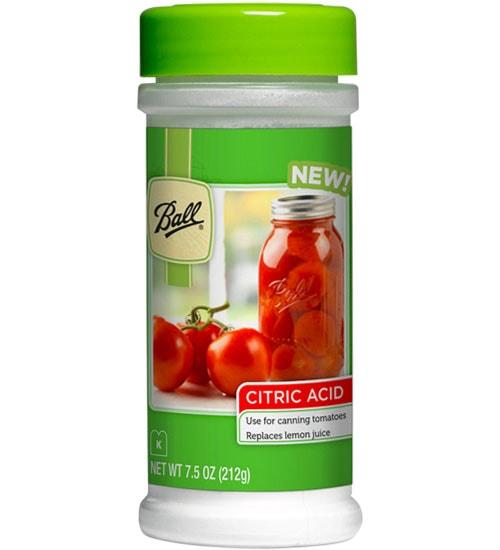Organic food has become increasingly popular in recent years, with many people seeking out healthier, more natural options for their diets. One of the most common ingredients found in organic food is citric acid, which is a naturally occurring compound found in a variety of fruits and vegetables. Citric acid is a weak acid that is primarily used as a flavoring in food and beverages, as well as a preservative in other products. It is also used in some cosmetics and cleaning agents. This article will explain what citric acid is and its role in organic food. We will also discuss its health benefits and potential side effects, as well as how to best incorporate it into your diet.
Citric acid is a widely used food preservative and flavoring agent. This fruit is available naturally in citrus fruits, but it is also produced. As a pH buffer, it is prized for its sour flavor and ability to dissolve quickly. Citric acid is used as a flavor booster in 50% of all beverages. If you want to substitute Citric acid for Citric acid, you can do so either as an ingredient or as a measure. This device is used to adjust the pH of the solution when brewing both beer and wine. You can add Citric acid powder to finished foods such as guacamole.
When exposed to citrus acid for an extended period of time, it can cause irritation to the eyes as well as skin. This can be obtained in powder form and is frequently found in supermarkets with other home canning supplies. The sweetness of drinks is balanced with the refreshing flavor of citric acid, which has a tart, refreshing flavor.
Citrus fruits, for example, contain a natural, weak, organic acid, but this is not the same as Citric acid.
Organic Citric Acid Powder can also be added to personal care and cleaning products to add a sourness to foods and beverages. Organic Citric Acid Powder is vegan, kosher, and gluten-free, making it ideal for vegetarians and vegans.
It can also be used to sour or tart foods, though it is commonly added to preserve them. Citric acid, unlike most commercial preservatives, has a natural way of extending a product’s shelf life by lowering the pH to an ideal point where bacteria cannot thrive.
Because it is a natural preservative, it can be used as a natural flavoring agent in foods and soft drinks. Citric acid, a component of the tricarboxylic acid or Krebs cycle, acts as an intermediary substance in oxidative metabolism in all animal tissues.
Is Organic Citric Acid Natural?

Organic citric acid is a naturally occurring acid found in fruits and vegetables like oranges and lemons. It is a safe and effective food preservative and is commonly used in food, beverages, and pharmaceutical products. Organic citric acid is a natural ingredient and is safe for human consumption. It is also used in a variety of cosmetic products due to its ability to help remove excess oils and dirt from the skin. Organic citric acid is an excellent source of vitamin C and helps to improve digestion and boost immunity. It is also a popular ingredient in cleaning products, as its acidity helps to cut through grease and grime.
Citric acid is a commodity chemical that is produced by feeding simple carbohydrates to Aspergillus niger mold, the microbe that produces most of it. The most common methods of processing are calcium hydroxide and sulfuric acid. Consumer groups have raised concerns about mold residue left behind after processing that may cause mold allergies. Non-GMO versions of some products are being introduced at a small number of businesses. There is no evidence that such sensitivity is caused by mold residue.
Despite the fact that both vinegar and citric acid have long been used to clean and disinfecting surfaces, scientists discovered that citric acid has the full potential to be a disinfectant a few years ago. Dr. Beckman claims that citric acid’s reducing agent properties aid in the destruction of proteins, including viruses. As a result, if taken orally, citric acid has the potential to help reduce the spread of viruses and other diseases by reducing the risk of stomach inflammation. Citric acid, as a result, is unlikely to cause irritation when used in normal amounts on the skin due to its mild nature. Citric acid, on the other hand, can cause serious eye irritation and smarting, and its particles can be irritating to the eyes, so avoid prolonged contact. Citric acid consumption can also irritate and cause stomach pain, vomiting, and diarrhoea in addition to causing stomach pain and vomiting. As a result, it is critical to use caution when using citric acid as a disinfectant, and only when used on surfaces and objects.
Organic Citric Acid: Nature’s Antioxidant And Preservative
Citric acid is an organic acid that occurs naturally in fruits and vegetables. Citrus fruits, such as lemons, limes, and oranges, are common sources of this component. Citric acid is a natural antioxidant and preservative found in most processed and packaged foods because it serves as a natural antioxidant. Citric acid is also present in other fruits and vegetables in slightly higher concentrations than citrus fruits, but these are typically lower concentrations. In addition to being used in the manufacture of citric acid, crude sugars are fermented by the mold Aspergillus niger. This process produces a large amount of citric acid, which can be used as a food ingredient. Citric acid is a type of naturally occurring weak acid found in a wide range of fruits and vegetables. Citrus fruits such as lemons, limes, and oranges are the most common varieties, with the mold Aspergillus niger fermentation of crude sugars also providing the majority of the acid content. As a result, there is no need to use synthetic citric acid.
What Does Citric Acid Do To Foods?

Citrus fruits, such as lemons and limes, contain the highest levels of naturally occurring citric acid in the wild, according to research published in 2014. Natural foods such as tangerines, oranges, grapefruits, pineapples, tomatoes, broccoli, carrots, and berries are also available.
Citric acid is present in the majority of citrus fruits, but lemon and limes have the highest levels of it, followed by oranges and grapefruits. Citric acid is widely used in the food industry and is primarily a food additive. In addition to acting as an antioxidant and maintaining color, it regulates acidity. Citric acid and its relative, hydroxycitric acid, are used in medications and supplements as inactive ingredients. Because of its acidity and slightly sour taste, titan can be used to control the pH of some beverages and mask the bitter taste of some medications. Citric acid, according to the FDA, is safe for use as a food additive. Despite the fact that the FDA generally considers the citric acid found in food additives to be safe, some anecdotal evidence suggests that it may cause allergic reactions. Consult with your doctor if you plan to change your diet. Verywell Fit relies solely on peer-reviewed studies, as well as high-quality sources, to support its articles.
If you eat a diet that is devoid of citric acid, your skin will appear healthy and strong. Fruit and vegetable consumption is beneficial, but avoid certain foods like berries, cayenne peppers, lettuce, pineapple, and tomatoes, as well as juices and beverages containing these acids. Citric acid, a type of exfoliant found in a variety of skincare products, assists in the removal of dead skin cells, as well as the tone of the skin and soften and smooth it. Furthermore, citric acid can be used as an acid brightener to keep products at a mild and non-irritating pH. It is possible to keep your skin looking its best by eating a healthy diet and avoiding certain ingredients.
Lemons & Limes: Nature’s Citrate Champions
Citric acid is a sweet compound found in the leaves of lemons and limes, as well as 8% of their dry weight. There are, however, other ways to add more citric acid to your diet. Manufacturers frequently add citric acid to canned fruits and vegetables to make them healthier, but sodas, juices, powdered beverages, candies, frozen foods, and some dairy products also contain the substance.
Citrus fruits and juices are both plentiful and inexpensive, making them an excellent substitute for more natural sources of citrate. Among them, lemons and limes are the most acidic, with oranges, grapefruits, and other varieties such as tangerines, clementines, and Mandarins coming in second. You can get your daily dose of citrate and other beneficial vitamins and minerals from eating these fruits. You do not have to be afraid to get your hands on some lemons and limes.
Is Citric Acid A Safe Ingredient?

Citric acid is a safe ingredient commonly used in food, beverages, and personal care products. It is a natural preservative and is found in many fruits, making it a popular choice for adding tartness and flavor. Citric acid is also used to adjust the acidity of food, helping to preserve its freshness. Although citric acid is generally considered safe, it is possible to be allergic to it. If you have any concerns, it is best to consult a doctor before consuming any foods that contain citric acid.
A cation is a compound that is derived from lemons. It is produced today through the use of a specific type of mold and can be used for a variety of purposes. Citric acid is a food and supplement ingredient that is manufactured. Because the cost of producing this additive from citrus fruits is prohibitively high, citrus fruits are not recommended for use. Citric acid is an important component of a variety of food, beverage, and medicine ingredients. It can be used to improve the acidity, flavor, and preservation of ingredients in food. Citric acid, in addition to being a disinfectant, can also be used as a cleaning agent. A study found it to be effective in both treating and preventing human norovirus, which is a leading cause of foodborne illness.
Citric acid is both safe and beneficial in a variety of ways. This substance, in addition to being broken down and excreted naturally, may also help prevent kidney stones in the long run. Citric acid had a low acute toxicity, according to a study conducted by the International Organization for Economic Cooperation and Development. As a result, it is a viable option for preventing calcium oxalate kidney stones. Citric acid’s scope extends beyond its use as a cleaning agent to include other applications such as preservatives, flavoring agents, and flavoring agents. It’s no surprise that citric acid is in high demand around the world.
Citric Acid: Safe And Beneficial For Health
Citric acid can be found in a variety of fruits and vegetables, including lemons, oranges, and limes. Many studies have shown the potential health benefits of this food additive, which is widely known to be safe and non-toxic. Citric acid may even be beneficial to your health, in addition to being safe. Citric acid, according to research, can help lower the risk of calcium oxalate kidney stones, a common type of kidney stone. Citric acid is a powerful antioxidant, as well as a valuable antioxidant, and it aids in the protection of the body from oxidative damage and inflammation. Because of its many potential benefits, the Joint FAO/WHO Expert Committee on Food Additives has consistently declared citric acid to be safe (GRAS). Citric acid not only has a high concentration of nutrients, but it is also safe to consume.
Citric Acid In Food Preservation

Citric acid is a natural preservative commonly used in food preservation. It helps to inhibit the growth of bacteria, fungi, and mold, thus helping to extend the shelf life of foods. Citric acid is derived from citrus fruits and is often used to add a tart flavor to foods and beverages. It is also used to adjust the acidity or pH of food products, extending their shelf life by preventing spoilage. Citric acid is a safe, natural preservative that is commonly used in canned and packaged foods, as well as in jams, jellies, and other food products.
How To Use Citric Acid In Food
Citric acid can be added to lemon dinner dishes like ceviche and lemon pasta. Aside from tomato soup, it can be used to make other delicious dishes such as compound butters, margaritas, and more. Without adding liquid, it adds an acidic kick to any dish or drink, making it an excellent substitute for vinegar or lemon juice.
Many sour candies, beverages, and snacks contain Citric acid as a preservative. It’s a great addition to a variety of dishes, including tomato soup, compound butters, and margaritas. Use iciline acid to enhance the flavor of a dish or baked good at home. Citric acid has a significant impact on the overall flavor of the dish. Citric acid is not always available at every grocery store. It is easily available at both Amazon and Walmart. You can frost cupcakes with a piping bag that is fitted with a piping tip.
Citric Acid: A Natural And Safe Additive For Home And Food Use – But Not For Covid-19!
Citric acid is a powerful substance, in addition to being useful in health and food. Citrus fruits are naturally acidic, and it is frequently added to a variety of processed foods. It is not only helpful in the prevention and treatment of kidney stones, but it can also help with energy metabolism, mineral absorption, and mold and mildew removal, making it an excellent cleaning and disinfecting ingredient. Citric acid, in addition to being an excellent tool for keeping food and home clean, is not intended to be used as a disinfectant against Covid-19 or other bacteria. If you are looking for an effective and safe method to disinfect against Covid-19, you should use the CDC’s recommended products. Furthermore, if you have kidney stones or another condition, it is best to consult with your doctor before consuming too much citric acid. Citric acid is a very natural and safe additive that can be used to improve the taste of a wide range of foods as a disinfecting and cleaning agent. Because it can be used as a disinfectant against Covid-19, it should not be consumed without consulting a medical professional; however, large amounts should be consumed with caution if you have any medical conditions.
Citric Acid Intolerance Food List
If you are looking for a citric acid intolerance food list, there are a few things to consider. Citric acid is a naturally occurring acid found in many fruits and vegetables and is used in food preservation and flavor enhancement. If you have an intolerance to citric acid, you may need to limit or avoid certain foods that contain this acid. This list can include citrus fruits, tomatoes, strawberries, pineapple, and other fruits and vegetables. Additionally, processed foods, beverages, and condiments such as ketchup, salad dressings, and sauces may also contain citric acid. If you are unsure if something contains citric acid, it is best to check the label or contact the manufacturer for more information.
Citric acid, a mineral found naturally in some fruits, is found in some foods. A number of foods and beverages contain it in some form. Citric acid not only prevents food spoilage and degradation, but it also assists in the preservation of food. Furthermore, it aids in the regulation of acidity, or pH, of food products, as well as the addition of a sour or acidic flavor. Citric acid is used in a wide range of foods and beverages. Citric acid is frequently found in fruit-flavored candy and frozen desserts, as is common in soft drinks. As a result of its use, the texture and structure of cheese are improved. On the packaging, there are ingredient lists for Citric Acid.
Is Citric Acid Bad For You
According to health experts, inhaling or ingesting these on the reg can have health risks due to mold and mycotoxins, which have been linked to respiratory issues, allergies, and even chronic illness. Citric acid, according to Vila, can irritate the skin and make asthma symptoms worse.
Citric acid is an preservative and flavoring additive that is commonly found in food and beverage. It tastes like a slightly sour version of any food you can imagine. Citric acid-containing foods have numerous health benefits. People are concerned about the possible dangers of ingesting or inhaling these on the reg. citric acid can cause asthma symptoms by irritating the skin and increasing the risk of allergic reactions. Sugar is added to the mold primarily from beets and corn, both of which are genetically modified organisms (GMOs). If you want to make a cleaner diet and limit additives and GMOs, you should lower your citic acid intake.
Concerns about citric acid have been proven to be false in recent months. Citric acid is actually a nutritious and beneficial substance, contrary to popular belief. Citric acid, which is naturally present in citrus fruits, is 10% of their weight. Citric acid has been shown to be a powerful protective agent for the brain. Effects of this medication include decreased lipid peroxidation and nitric oxide levels, as well as increased glutathione, GPx activity, the ability to translocate oxygen, and brain glucose levels. In comparison, the activity of PON1 and butyrylcholinesterase decreased, whereas PON1 and butyrylcholinesterase activity increased. Citric acid, as these findings demonstrate, does not pose a threat to humans as previously thought. It can, however, be an important ally in maintaining brain health.
The Safety Of Citric Acid: A Closer Look
Citric acid, as a natural ingredient, has been shown to be generally safe by the FDA for use in food and skin care products. Because of its many disinfecting and cleaning benefits, it is an excellent choice for disinfecting and cleaning. It should not be used as a disinfectant to combat diseases such as Covid-19. citric acid has been shown to provide protective effects against liver damage in the absence of toxic and inflammatory conditions. As a result, moderate amounts of the compound are unlikely to have any negative effects on the liver. As a result, citric acid is generally safe to use in food and skin products and may help to improve liver function in certain circumstances.
Uses Of Citric Acid In Daily Life
Citric acid is an organic acid which is widely used in our daily life. It can be found in many food and beverage products, such as soft drinks, jams, canned fruits, dairy products, and more. It is also used as a preservative, as it helps to extend the shelf life of food products. Additionally, citric acid is used in many household cleaning products, such as laundry detergents and dishwashing liquids, to help remove hard water stains and mineral deposits. Finally, it can be used as a natural exfoliator in skin care products, as it helps to remove dead skin cells and improve skin tone.
Citric acid has been shown in studies to be beneficial for the body. Citric acid consumption in small doses has been shown to help maintain a healthy blood citrate level while lowering body oxidation. It has been discovered that after receiving citric acid, the average percentage of it in the urine varies depending on the size of the body. Furthermore, blood citrate levels in the feces went up up for up to seven hours, and no additional citric acid was produced. Citric acid, also known as sour salt, has been shown in studies to be both safe and effective in promoting healthy blood citrate levels. Citric acid must be consumed at a dose that does not pose any risks to the body. Consult a physician to determine the correct dose of citric acid if you are using it as a supplement.
This content was originally published here.




















